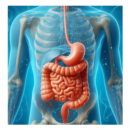Zinc: Benefits, Sources & Deficiency
What’s the science behind zinc?
We first hear all about Zinc in school science class. More for its metallic uses rather than its health benefits.
Zinc is a chemical element. Its official symbol is Zn, and its atomic number is 30, which means each zinc atom has 30 protons in its nucleus. Zinc is not found in its elemental form. Instead, it is found in minerals with other chemical elements.
The use of Zinc dates back 2,500 years. Humans mixed zinc with copper to make brass, an alloy. The ancient Romans and others in Middle Eastern regions used brass to make coins and ornamental items. It wasn’t until the 1940’s that scientists and curious thinkers first discovered Zinc’s health benefits.
1.Why do we need it?
Zinc is found in cells throughout the body. It helps the immune system fight off invading bacteria and viruses. The body also needs zinc to make proteins and DNA, the genetic material in all cells. During pregnancy, infancy, and childhood, the body needs zinc to grow and develop properly.
Zinc also combines with calcium and Vitamin B1 to form HCL the enzyme need by the stomach to be able to brake down proteins. Zinc is also binds with Toxic metals to move them out of the body safely and it makes up part of the enzymes we need to drive the Phase 1 Detox pathway in out Liver.
So as you can see it is an important mineral and a cofactor or partner that supports many body systems. It is one of the most abundant elements however it is also a very common deficiency.
How do I know if I am deficient ?
These are some of the signs and symptoms of low Zinc
Loss of appetite Growth Retardation Hair Loss White Fingernail Spots
Depression. Dry Skin Rash Loss of taste Loss of Smell
Allergies Sleep Problems AutoImmune Herpes Virus
Dandruff Low Fertility Stress Prostate problems
Slow Healing Diarrhea Poor Diet
3. What’s the best way to get it?
The best way to obtain the benefits of Zinc in by eating a diets that is rich in organic vegetables, nuts and seeds. High amounts are also found in lentils, meats and shellfish. As always we suggest that you choose organic, pasture raised and fed and wild sources these proteins. If you have symptoms or signs of Zinc deficiency then you can also add or supplement in addition to diet.
4. How should you choose a zinc supplement? Are there other ingredients that work synergistically that you should look for?
Quality is super important and you can ask you Functional Health provider or Nutritionist for their recommendations. You can also look for companies and brands that have high ratings and I suggest you only purchase brands that are made in the USA, have been through vigorous third party testing. My recommendations are based on formulas from Standard Process and Mediherb
One consideration when supplementing zinc involves the interaction between zinc and copper, another essential mineral.
Zinc and Copper work synergistically to keep the in the body in balance.
The body uses copper in energy production and to support bone, skin, neurological, and cardiovascular health. Along with zinc, copper is a component of superoxide dismutase, an important antioxidant enzyme utilized by the immune system and the Phase 1 Liver Detox pathway we mentioned earlier.
Although copper deficiency is rare, it can result from high levels of zinc intake because of a decreased ability to absorb and use copper from the diet.
5. If you’re supplementing with zinc, is it okay to take it
every day?
The average recommendation for zinc is 11 mg per day for healthy adults, slightly more or less based on gender and pregnancy or lactation status. For copper, the average recommendations is 1 mg daily for healthy adults.
I like to test Zinc Status by using a Liquid Formula. We do that by putting a few drops into the mouth, waiting 10 seconds and then asking our clients to swallow the liquid and tell me what it tastes like.
If it tastes metallic then you know your zinc level are good. If it tastes like water then you need to supplement zinc daily until you have that bitter metallic taste. Then I suggest switching to a “multi” or immune formula with an optimal balance of zinc and copper.
Here are my favorites:
Immuplex: a Great overall formula for daily immune support or the daily Immune Packs are also great.
Trace Min B12: a great daily and provides the need B12 support for energy and other functions.
Chezyn: A balance of copper and zinc in the right ratios
Zypan: My go to for healthy digestion and as a bonus has Zinc
6. Are there any contraindications for zinc supplements or
things you should avoid while taking?
If you have digestive symptoms or a low on B vitamins, or have low stomach acid then it is possible that a supplement could make you feel a little queasy. Start slow and realize that there are other deficiencies that need to be address. Certain Medications could also have an impact. So if you are on any medications and before starting any supplement routine you should check in with me or your healthcare provider.
have a healthy week
Dr Pia
P.S. My appointment today was with Dr Pia for nutritional counseling and energy work. She was so smart, attentive and full of knowledge. I know she’s going to change my life!! Do yourself a favor, come here and try everything!











